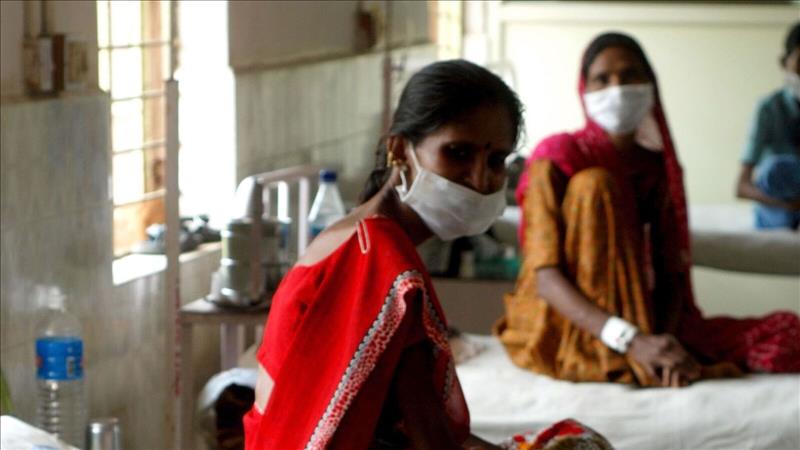
403
Sorry!!
Error! We're sorry, but the page you were looking for doesn't exist.
Typhoid, Vector-Borne Diseases Emerge As Key Health Challenges For India
(MENAFN- Live Mint) "New Delhi: In the last two years, typhoid, dengue, malaria, scrub typhus and influenza have emerged as a public health concern, according to data shared by the National Centre for Disease Control (NCDC).Typhoid, a water-borne disease, has been the most prevalent between 2022 and 2024, followed by vector-borne diseases such as dengue and malaria. Despite a decline in occurrence, scrub typhus remained a significant concern, especially in South India, where climate change factors, such as temperature, rainfall and humidity, are exacerbating its spread.“Scrub typhus is a bacterial disease and we are seeing many cases compared to the past few years. There was limited awareness about it,” said Dr Teena Mary Joy, associate professor, department of community medicine, Amrita Hospital, Kochi.“The cases are going up because there is more contact between forest area and humans. Also many people are going for trek and hiking in forest areas and come back with the infection. Climate change is definitely linked to the surge in scrub typhus cases,” she added.
Also Read | Indian scientists develop iron jabs, will help check anaemiaAnnually, typhoid affects approximately 4.5 million people in India, resulting in around 9,000 deaths, with urban areas witnessing a disproportionately high incidence rate. Experts also highlighted a notable 30% increase in typhoid cases during the monsoon season in 2023, with drug-resistant strains posing a primary challenge.
In India, typhoid vaccines are mandated immediately after birth, but the first dose of typhoid conjugated vaccine (TCV) is typically administered at 9-12 months. Doctors suggest that children and those with compromised immunity must be vaccinated using both the TCV and and non-conjugated polysaccharide vaccine (ViCPS), to avoid complications.“Typhoid is really emerging as a big concern. With humidity increasing, water and quality of food is an issue. At Safdarjung Hospital we published a study where we mentioned the immediate need for introducing oral typhoid vaccines in India,” said Dr Jugal Kishore, head of community medicine, Safdarjung Hospital of mid-November 2023, around 200,000 dengue cases were reported nationwide, with Bengaluru and Delhi witnessing a significant number of cases. Warmer temperatures provide an ideal breeding ground for Aedes mosquitoes, increasing the risk of dengue, which can lead to organ damage, internal bleeding, and even death. Pregnant women and infants are particularly vulnerable.
Dengue vaccination trials are ongoing in India, with the Serum Institute of India (SII) developing the first indigenous vaccine, Dengusiil. Indian Immunologicals Ltd is also working on its own vaccine for dengue 2022, India accounted for 66% of the 5.2 million malaria cases reported in Southeast Asia. Pregnant women, elderly adults, and young children are at high risk of severe infections, which can lead to respiratory problems, hypoglycemia, anemia, and organ failure. Cerebral malaria can be fatal. Last year, the World Health Organization (WHO) had pre-qualified the R21/Matrix-M malaria vaccine developed by Oxford University and the Serum Institute of India (SII).“Climate change is definitely a big factor for the rise in vector-borne diseases. Humidity and temperature play key roles in breeding of mosquitoes. Untimely rainfall, and poor drainage system leading to water storage are also factors leading to rise in vector-borne diseases,” Kishore added Read | Government starts work on expanding Ayushman Bharat scheme
Also Read | Indian scientists develop iron jabs, will help check anaemiaAnnually, typhoid affects approximately 4.5 million people in India, resulting in around 9,000 deaths, with urban areas witnessing a disproportionately high incidence rate. Experts also highlighted a notable 30% increase in typhoid cases during the monsoon season in 2023, with drug-resistant strains posing a primary challenge.
In India, typhoid vaccines are mandated immediately after birth, but the first dose of typhoid conjugated vaccine (TCV) is typically administered at 9-12 months. Doctors suggest that children and those with compromised immunity must be vaccinated using both the TCV and and non-conjugated polysaccharide vaccine (ViCPS), to avoid complications.“Typhoid is really emerging as a big concern. With humidity increasing, water and quality of food is an issue. At Safdarjung Hospital we published a study where we mentioned the immediate need for introducing oral typhoid vaccines in India,” said Dr Jugal Kishore, head of community medicine, Safdarjung Hospital of mid-November 2023, around 200,000 dengue cases were reported nationwide, with Bengaluru and Delhi witnessing a significant number of cases. Warmer temperatures provide an ideal breeding ground for Aedes mosquitoes, increasing the risk of dengue, which can lead to organ damage, internal bleeding, and even death. Pregnant women and infants are particularly vulnerable.
Dengue vaccination trials are ongoing in India, with the Serum Institute of India (SII) developing the first indigenous vaccine, Dengusiil. Indian Immunologicals Ltd is also working on its own vaccine for dengue 2022, India accounted for 66% of the 5.2 million malaria cases reported in Southeast Asia. Pregnant women, elderly adults, and young children are at high risk of severe infections, which can lead to respiratory problems, hypoglycemia, anemia, and organ failure. Cerebral malaria can be fatal. Last year, the World Health Organization (WHO) had pre-qualified the R21/Matrix-M malaria vaccine developed by Oxford University and the Serum Institute of India (SII).“Climate change is definitely a big factor for the rise in vector-borne diseases. Humidity and temperature play key roles in breeding of mosquitoes. Untimely rainfall, and poor drainage system leading to water storage are also factors leading to rise in vector-borne diseases,” Kishore added Read | Government starts work on expanding Ayushman Bharat scheme
Legal Disclaimer:
MENAFN provides the
information “as is” without warranty of any kind. We do not accept
any responsibility or liability for the accuracy, content, images,
videos, licenses, completeness, legality, or reliability of the information
contained in this article. If you have any complaints or copyright
issues related to this article, kindly contact the provider above.

















Comments
No comment